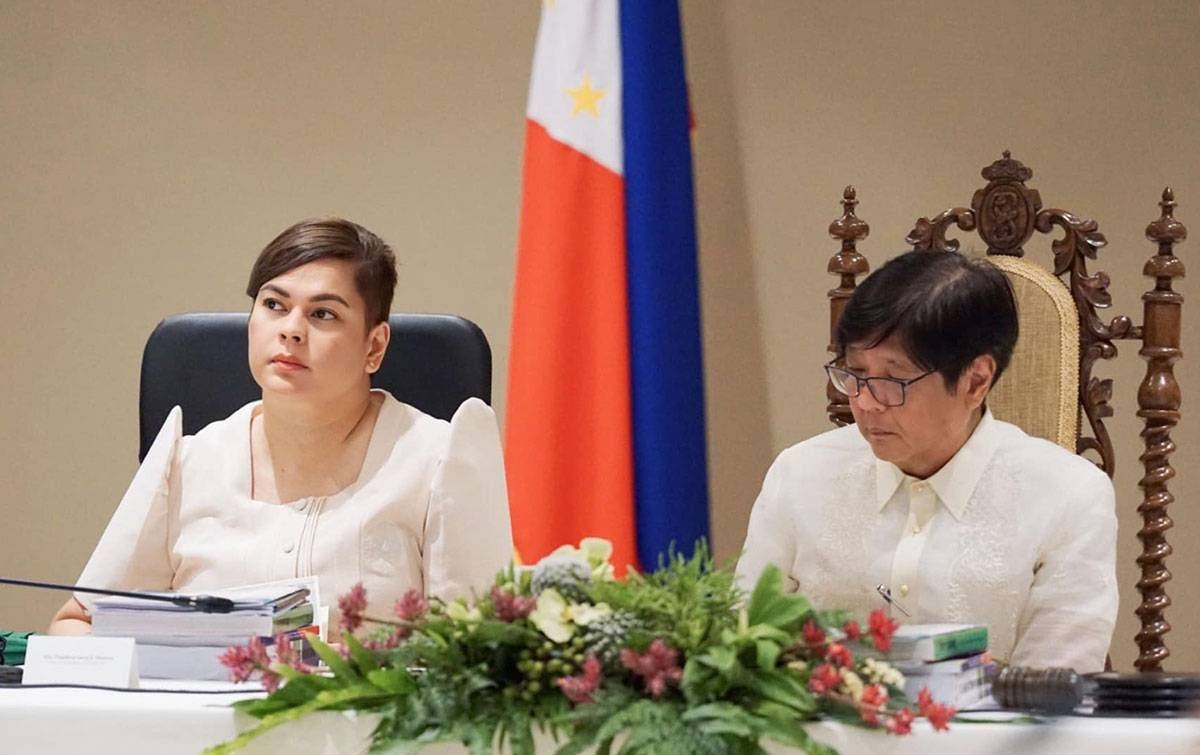
COALITION-BUILDING AS AN EXERCISE IN POLITICAL SHAPE-SHIFTING
LAST week, President Ferdinand Marcos Jr. announced that his political party, the Partido Federal ng Pilipinas, has entered into an alliance with the National Unity Party as he seeks to expand the Alyansa Para sa Bagong Pilipinas, a coalition he is building ahead of next year's midterm election.
The NUP is the fourth party to join the Alyansa, and many more political groups are expected to sign up.
The President's announcement came just days after Vice President Sara Duterte relinquished the education portfolio and the vice chairmanship of the National Task Force to End Local Communist Armed Conflict (NTF-Elcac). Her decision drove the final nail in the coffin of UniTeam, the electoral partnership that catapulted Marcos and Duterte to a resounding victory in 2022.
Duterte has since dismissed UniTeam as nothing more than an election-driven union that had served its purpose. "The elections are over; we won, and we are grateful to those who supported us," she said.
President Marcos insists that UniTeam remains intact as an alliance despite Duterte's departure from the Cabinet. He said it all depends now on whether the vice president would stay with the administration or move to the opposition in the 2025 elections.
Few political observers were surprised at UniTeam's early demise. It was a rickety relationship to begin with, banking mainly on the huge popularity of its candidates that made up for the lack of a solid political platform.
Cracks began to show as early as May 2023, following the demotion of Lakas-CMD Chairman Emeritus Gloria Macapagal Arroyo, a staunch Duterte ally, as House senior deputy speaker.
Duterte promptly resigned as Lakas-CMD chairman, citing the "toxic" political climate.
Marcos, meanwhile, shrugged off Arroyo's demotion as part of normal congressional business.
In October, the House excised over P1 billion in confidential funds already allocated in the proposed 2024 budget to the Office of the Vice President and four other agencies.
More fissures appeared in January after former president Rodrigo Duterte described Marcos as being high on drugs and the Duterte siblings called on the President to step down.
In April, first lady Liza Araneta-Marcos clapped back at the vice president for allowing her father to vilify the President.
Last June 19, Sara Duterte closed the short but stormy chapter on UniTeam by announcing she was quitting her Cabinet posts.
President Marcos, however, seems intent on writing a new book altogether by launching the Alyansa Para sa Bagong Pilipinas.
No 'marriage of convenience'
He has made it clear the Alyansa will not be another alliance borne out of political expediency or, as he put it, "a marriage of convenience."
"So, that is why I think that we are making a very important change in the thinking, in the politics of the Philippines. That is based not on political expediency but on ideology. And what is the ideology that we are espousing? We speak now of unity, we speak now of Bagong Pilipinas, bringing the country, transforming the country to another place to a better place than we had found it," Marcos said.
More often than not, during electoral contests in the Philippines, ideological guideposts are relegated to the background or completely ignored. Political analyst Emmanuel C. Lallana cites a basic flaw in the country's political system, which is "loosely bound together, at various levels, by the loyalties to persons ... and not to platforms or ideologies."
This explains why our politicians have become adept at shape-shifting. Lallana notes: "When politicians switch parties in the Philippines, they bring along their retinue. The membership roll of the new party is immediately bloated, However, these new members will never be loyal to the new party."
Political shape-shifting became more prevalent after the two-party system was abolished. Back then, crossing party lines was almost an act of treachery. That sense of loyalty has all but vanished. Now, we have a multitude of parties engaged in a free-for-all for electoral positions, not to mention coalitions of convenience and alliances with no ideological backbone.
A discerning electorate in 2025 could provide the impetus to replace the candidate-centric system with a polity that favors parties with strong. principled beliefs centered on serving the people.
2024-06-30T16:20:32Z dg43tfdfdgfd